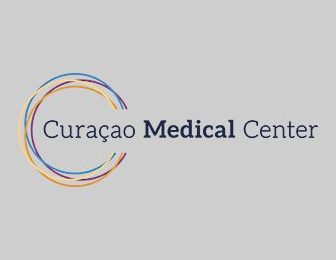Overview
During a kidney transplant, a patient receives a new kidney. With this new kidney, kidney function is basically restored to 50%, which greatly improves health. Every patient with good health is eligible for a kidney transplant. Age does not matter. It is true that there may be several health concerns due to old age which may make the chance of a successful transplant smaller.
Most transplants are done with kidneys from deceased donors, but a donor can also be a living person. Any person over the age of 18 can become a donor.
Family or relationship transplantation involves a family member or close person who donates a kidney. A big advantage of family transplantation is that there are many similarities of the tissue between both people. In addition, the kidney of a live donor is often in better condition than that of a deceased person. It has been established by law that there must be an emotional bond between patient and donor in order to prevent organ trafficking. It is also important that the donor donates a kidney entirely of his own free will, without external pressure. The donation of a kidney is a major event, both physically and emotionally. Therefore, this decision should be carefully considered.
You go to the Amsterdam University Medical Center for a transplant as this is not performed at Curacao Medical Center.
How does the treatment work?
Here you will find all the important information about your treatment.
Preparation
How do you prepare?
To qualify for a donated kidney, you must undergo a number of tests to determine whether you are physically and mentally fit for the kidney transplant and life with a new kidney. If your doctor agrees, he or she will register you with the Transplantation Department of the Amsterdam UMC. If you are going to wait for a kidney from a deceased donor, you will be registered at the Dutch Transplant Foundation. This foundation coordinates supply and demand. You will be given a blood test (tissue typing) to determine your blood type and tissue characteristics. This is important, because the blood type and tissue characteristics should be as similar as possible to those of the donor. Affected heart and blood vessels and chronic urinary tract infections are reasons to refrain from a transplant. But even with an increased surgical risk, you can get on the waiting list for transplantation.
What are the risks?
With rejection, the new kidney will work worse and is sometimes even lost. This happens in about 25% of patients. Often it is possible to overcome the rejection with drugs, but if this does not succeed, the kidney is lost. If the new kidney no longer functions, the patient falls back or starts on dialysis.
Information at home
If your kidney function is greatly reduced, or if you have started dialysis, your nephrologist can sign you up for the “Kidney team at home program.” Two information officers will then inform you (and if you like your family and friends also) at home about your kidney disease and the treatments, including transplantation.


The treatment
What happens before the treatment?
The average waiting time for a donor kidney is four years. The waiting time mainly depends on the supply, tissue characteristics and on how urgent your situation is. Transplantation is only possible if a suitable donor kidney is available, even if you are at the top of the waiting list. When you receive a call that a donor kidney is ready for you, you must fly to the Netherlands the same day. A number of studies will follow upon your arrival in Amsterdam. If these studies are favorable, the transplant can proceed. An important examination (cross-test) consists of bringing together your blood and that of the donor. This will help determine if there is a chance of organ rejection.
What happens during the treatment?
During the transplantation, your new kidney is placed in the lower abdomen and connected to the bladder and artery and vein. This is technically a simple operation. The old kidneys remain present, unless there are medical problems with them.
After treatment
What happens after treatment? The average hospital stay is 2 to 3 weeks. The new kidney generally starts working after 3 to 4 days. If this is not the case, you will be given dialysis until the new kidney works.
After dismissal
After dismissal, you will stay in an apartment in Amsterdam for about two and a half months.
On Curaçao
What should you think about at home? A rejection can occur quickly, but also after years. You will be given medications from the beginning to reduce the chances of rejection. These medications do cause side effects. This also makes you extra susceptible to infections. Your doctor will therefore keep a close eye on you at the outpatient clinic.
Information
Would you like more information about kidney transplantation, kidney donation or a visit from the kidney team at your home?
Call +5999-745-0027 or email: transplantashon@cmc.cw

